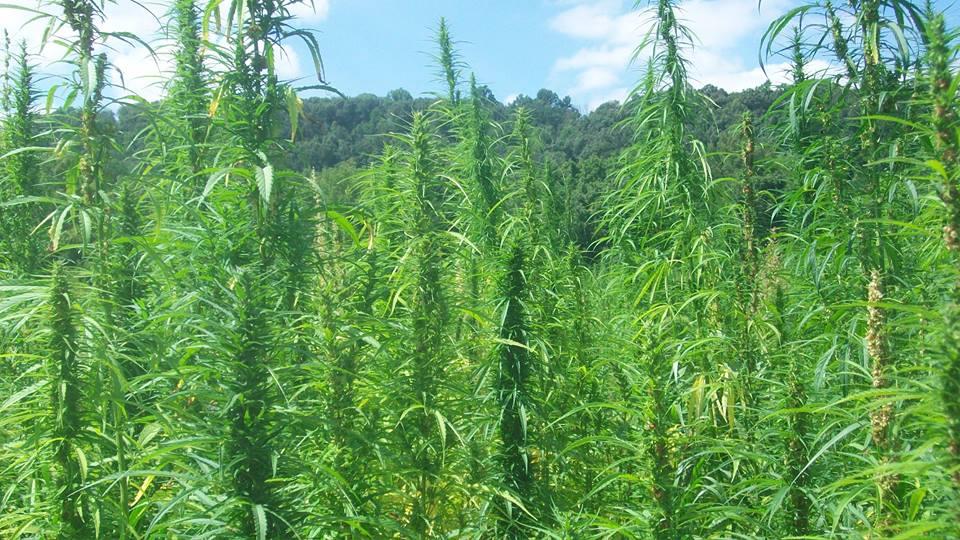Idaho begins accepting applications for hemp production

By Sean Ellis
Idaho Farm Bureau Federation
POCATELLO – The Idaho State Department of Agriculture on Nov. 8 began accepting applications for people interested in growing or processing hemp during 2022.
USDA recently approved the state’s hemp program and Idaho is the last state in the nation to allow farmers and other businesses to grow or process hemp.
Hemp is used in more than 20,000 products and Idaho farmers and processors can now begin to figure the market out for themselves, said Braden Jensen, deputy director of governmental affairs for Idaho Farm Bureau Federation.
IFBF has had policy supporting production of industrial hemp for more than 20 years and Farm Bureau members were involved in helping get a hemp program bill passed during the 2021 legislative session.
“We are happy the program has been approved and growers or processors who are interested in hemp production can begin exploring those opportunities now,” Jensen said. “We’re excited to see the industry is starting here for those who want to take advantage of the opportunity.”
The legislation that paved the way for an Idaho hemp program is a narrow bill that only allows for people to grow and process industrial hemp if they obtain a license from the Idaho State Department of Agriculture. People can also transport it on behalf of someone with a license.
Industrial hemp, by federal law, must not exceed 0.3 percent of THC, the psychoactive compound that gets a user of marijuana high. According to experts, it is impossible to get high from industrial hemp.
Idaho’s hemp program, as required by federal law, has safeguard to ensure hemp grown in the state does not exceed that 0.3 percent THC threshold.
If a farmer is approved by the Idaho State Department of Agriculture to grow hemp, field checks will be conducted close to harvest time to ensure no hemp plants exceed that threshold.
If a hemp sample tests above that 0.3 percent level, a farmer can opt to have it re-rested. If it still tests about the threshold, the farmer can dispose of the crop or choose to remediate, which could, for example, involve blending it together into biomass and then having it re-rested.
Anyone interested in growing or processing hemp in Idaho needs to begin by submitting an application through an online system on the ISDA website: https://agri.idaho.gov/main/
For a farmer, the total application and program costs will run about $1,000 per year. Costs include $100 for the application, $500 for a license and $250 per lot for pre-harvest inspections.
Lot sizes can run from 2-25 acres and it’s up to the farmer to choose how big each lot is.
There is a bit of risk involved for the farmer in choosing how big each lot is because if any hemp sample from a lot comes back over the acceptable level, the whole lot is affected.
So, if a farmer chooses to have one big lot, they risk having their entire hemp crop affected by a sample over the THC limit. If they choose to have several smaller lots, they minimize that risk but they also pay more up front because it costs $250 per lot for pre-harvest inspections.
“We leave it up to the farmer to decide how they want to structure their lots,” said ISDA Deputy Director Chanel Tewalt.
House Bill 126, the Idaho Industrial Hemp Research and Development Act, was signed into law April 16 by Gov. Brad Little after passing the Idaho Legislature by a combined vote of 74-31.
The bill directed the ISDA to craft an Idaho hemp program through the state’s negotiated rulemaking process, which allows anyone interested in participating to do so.
The state’s hemp program was hammered out over the summer by a diverse group of about 40 stakeholders, a group which included farmers and processors who are exploring the possibility of growing and processing hemp within the state.
“We’ve appreciated the incredible collaboration we’ve had,” Tewalt said. “We didn’t do this in a vacuum. We had a lot of feedback on this program.”
Industrial hemp products have always been sold legally in the United States but not until the 2018 farm bill was passed was it legal to grow and process hemp commercially in the U.S. The hemp products sold in the U.S. previously came from other countries.
The farm bill left it up to states to craft their own hemp plans and with USDA’s recent approval of Idaho’s hemp program, the Gem State became the 50th state in the nation to approve hemp production and processing.
Still can't find what you are looking for? Find by topic:
- Achievement Award (YF&R)
- Actions Alerts
- Advocacy
- Ag Ambassadors
- American Farm Bureau
- American Farm Bureau Policy Book
- Archive Photos
- Articles
- Board of Directors
- Calendar - State/District
- Calendar - County
- Capitol Reflections
- Collegiate Chapters
- Committee Application Form
- Commodities
- Convention Annual
- County Presidents & Board Information
- County Resource Page
- Delegate Form
- Discount Programs
- Discussion Meet
- Discussion Meet - High School
- Education Programs
- Events
- Excellence Award (YF&R)
- Expense Voucher
- Flickr
- Gem State Producer
- High School Discussion Meet
- High School Speech Contest
- Hope in Idaho Ag
- House of Delegates Credentials Form
- IFBF Board of Directors
- IFBF Policy Book
- IFBF Staff
- Insurance
- Legislative Action Program
- Legislative Issues
- Library
- MAC Trailer
- Magazines
- Map My Benefits
- Member Benefits
- Member Discount
- Membership Application
- Mission Statement
- Moving Agriculture to the Classroom
- Newsletter Sign up
- News Releases
- News Room
- Open Range Law
